Articles & Papers
-
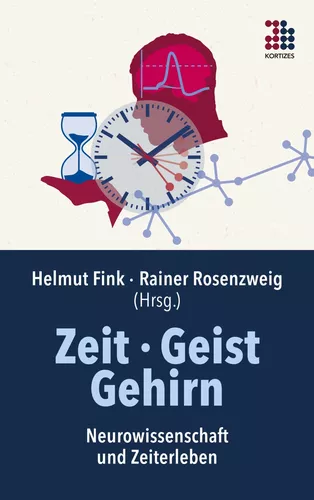 Zeitliche Vielfalt – Erscheinungsformen von Zeit und die Aufgabe der Philosophie
Zeitliche Vielfalt – Erscheinungsformen von Zeit und die Aufgabe der PhilosophieProceedings of the symposium Zeit · Geist · Gehirn. Neurowissenschaft und Zeiterleben 2021.
-
 »Everything a Learner Needs« – Constructions Of Linguistic and Social Marginality/Centrality In Discourses about (German) Language Learning and Multilingualism
»Everything a Learner Needs« – Constructions Of Linguistic and Social Marginality/Centrality In Discourses about (German) Language Learning and Multilingualism
-
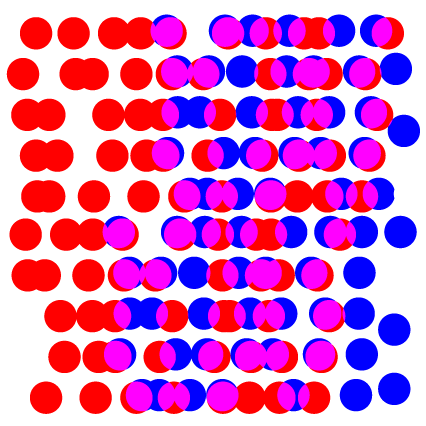 Mimicry of Marginality. On Masking Hegemonic Positions Through Discourse
Mimicry of Marginality. On Masking Hegemonic Positions Through Discourse
-
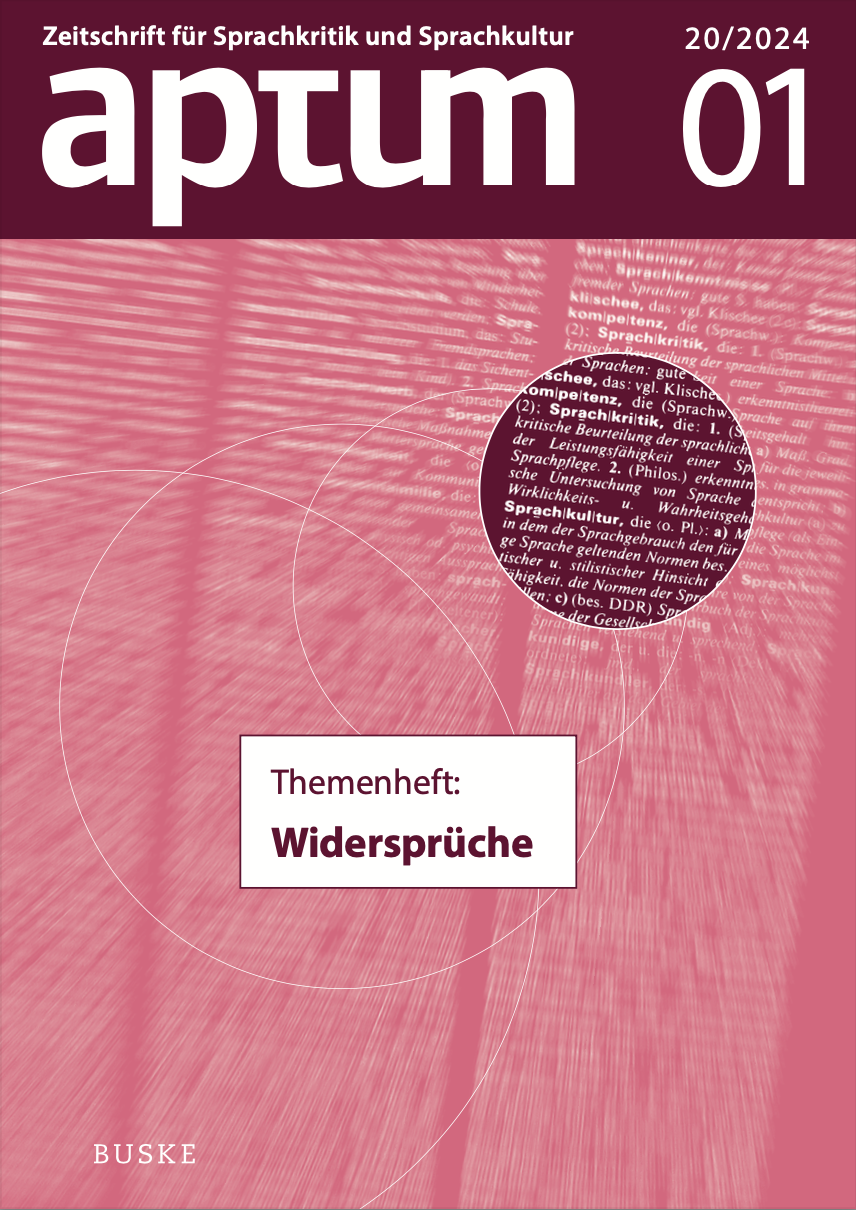 Diskurs ist Widerspruch
Diskurs ist WiderspruchIntroduction to the special issue Widersprüche.
-
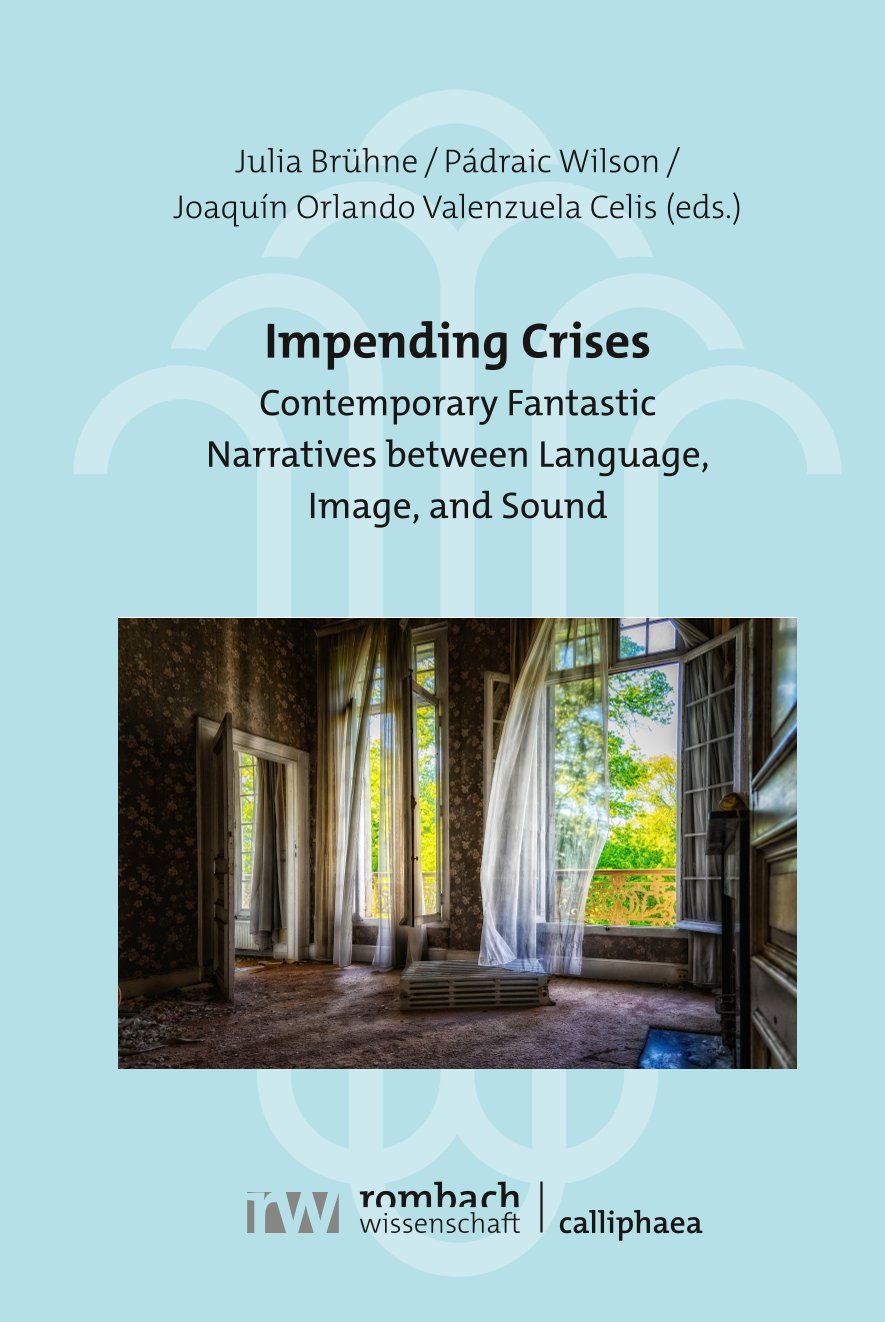 Between Fantasy and Horror: La nuée (2020) by Just Philippot as a Film about the Ecological Crisis of the Anthropocene
Between Fantasy and Horror: La nuée (2020) by Just Philippot as a Film about the Ecological Crisis of the AnthropoceneThis contribution deals with the contradictions of nature and agricultural economy in the contemporary moment of crisis in the Anthropocene. It is based on an analysis of the fantastic French film La nuée (The Swarm) by Just Philippot who reflects by this film also on the turning points from the preception of reality to obsession and from the uninjured body to the damaged body, or even from live to death resepctiveley from live instinct to death drive.
-
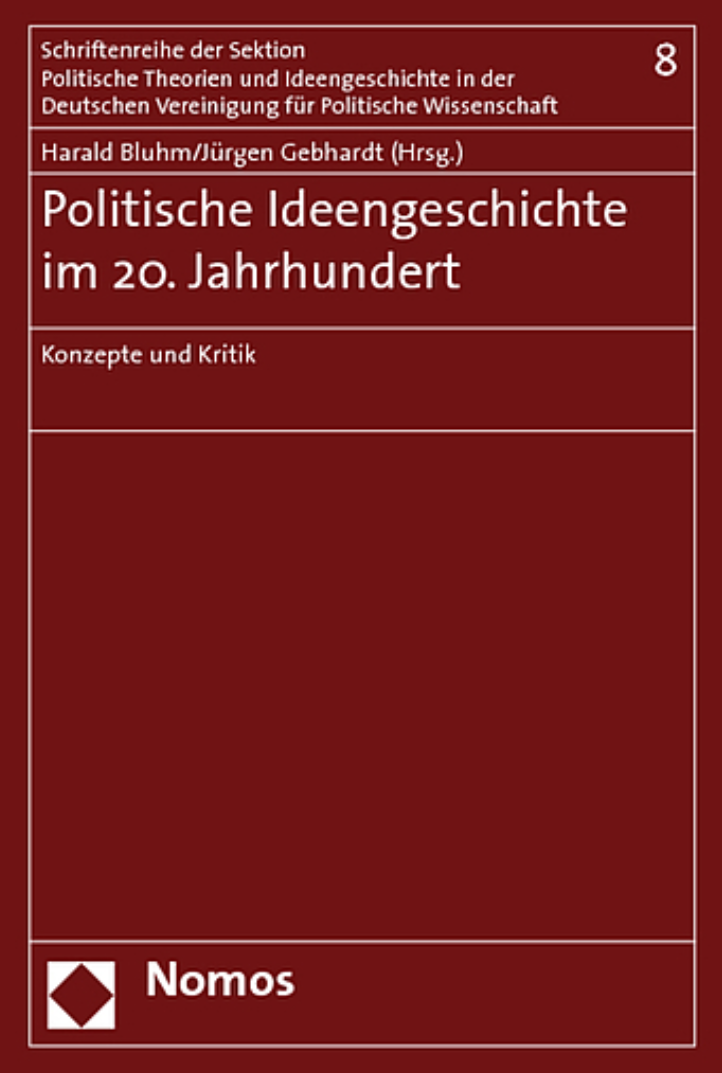 Politische Ideengeschichte und politische Hegemonie. Anmerkungen zum ‚Battle of the Books‘ an den amerikanischen Colleges
Politische Ideengeschichte und politische Hegemonie. Anmerkungen zum ‚Battle of the Books‘ an den amerikanischen Colleges
-
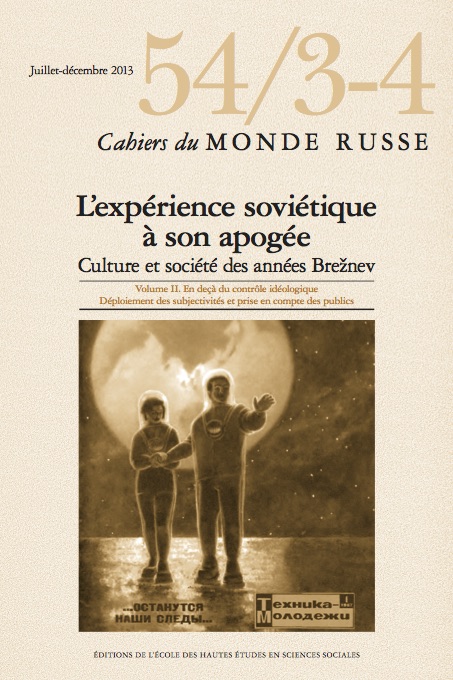 Les frontières du dicible. Du dialogue au silence: Les relations d’Andrej Saharov avec Hrušcev et Brežnev.
Les frontières du dicible. Du dialogue au silence: Les relations d’Andrej Saharov avec Hrušcev et Brežnev.This article describes the historical context that was decisive in Saharov’s commitment to warning party leaders of the dangers of the H-bomb and calling on them to respect human rights. He also attempts to explore the different ways in which Hruščev and Brežnev approached Saharov’s criticisms. Not only does he examine the three stages of the KGB model – educate, warn and only finally arrest renegades – he also sheds light on Andropov’s repeated appeals to Brežnev to speak with Saharov. Although Saharov, too, was keen to talk to Brežnev, the meeting between the two men never took place. In the end, it was against the backdrop of the Cold War that the Politbjuro decided on the best time to get rid of Saharov, doing as little damage as possible to the prestige of the Soviet Union, and thus re-establishing the limits of the dictable.
-
 „Sascha, ich würde Dir gern glauben, aber versteh auch Du mich …“. Breschnew, Dubček und die Frage von Kadern und Vertrauen im Konflikt um den Prager Frühling 1968
„Sascha, ich würde Dir gern glauben, aber versteh auch Du mich …“. Breschnew, Dubček und die Frage von Kadern und Vertrauen im Konflikt um den Prager Frühling 1968This article focuses on the question, which kind of diplomacy we have to deal with within the Warsaw pact states. Taking the invasion in Czechoslovakia in 1968 as an example, three theses are discussed: (1) Brezhnev transferred his inner-party concept of „trust in cadres“ and his „scenario of power“ based on trust to foreign politics and treated Dubček as a client whom he addressed in a patrimonial and familiar way. (2) He lost faith in Dubček when the latter established a new democratic discourse denying the central power of the party. (3) The diplomatic language within the Warsaw pact states referred more to socialist common values and party discipline than to the language and setting of international meetings with third party states.
-
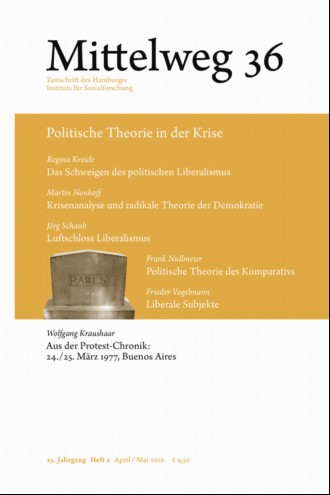 Krisenanalyse und radikale Theorie der Demokratie.
Krisenanalyse und radikale Theorie der Demokratie.
-
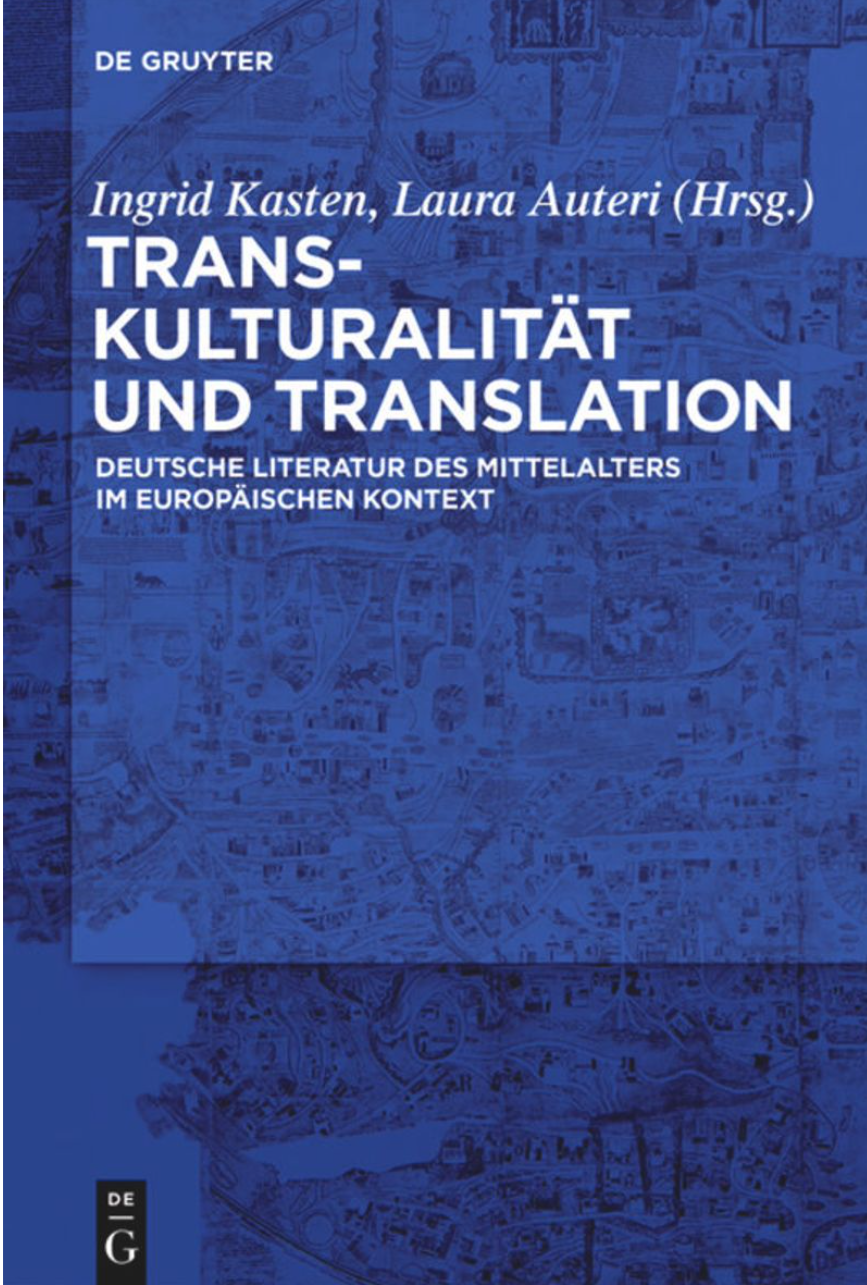 Erzählen in transkultureller Perspektive. Zur Poetologie der Widersprüche in der europäischen Heldendichtung
Erzählen in transkultureller Perspektive. Zur Poetologie der Widersprüche in der europäischen Heldendichtung
-
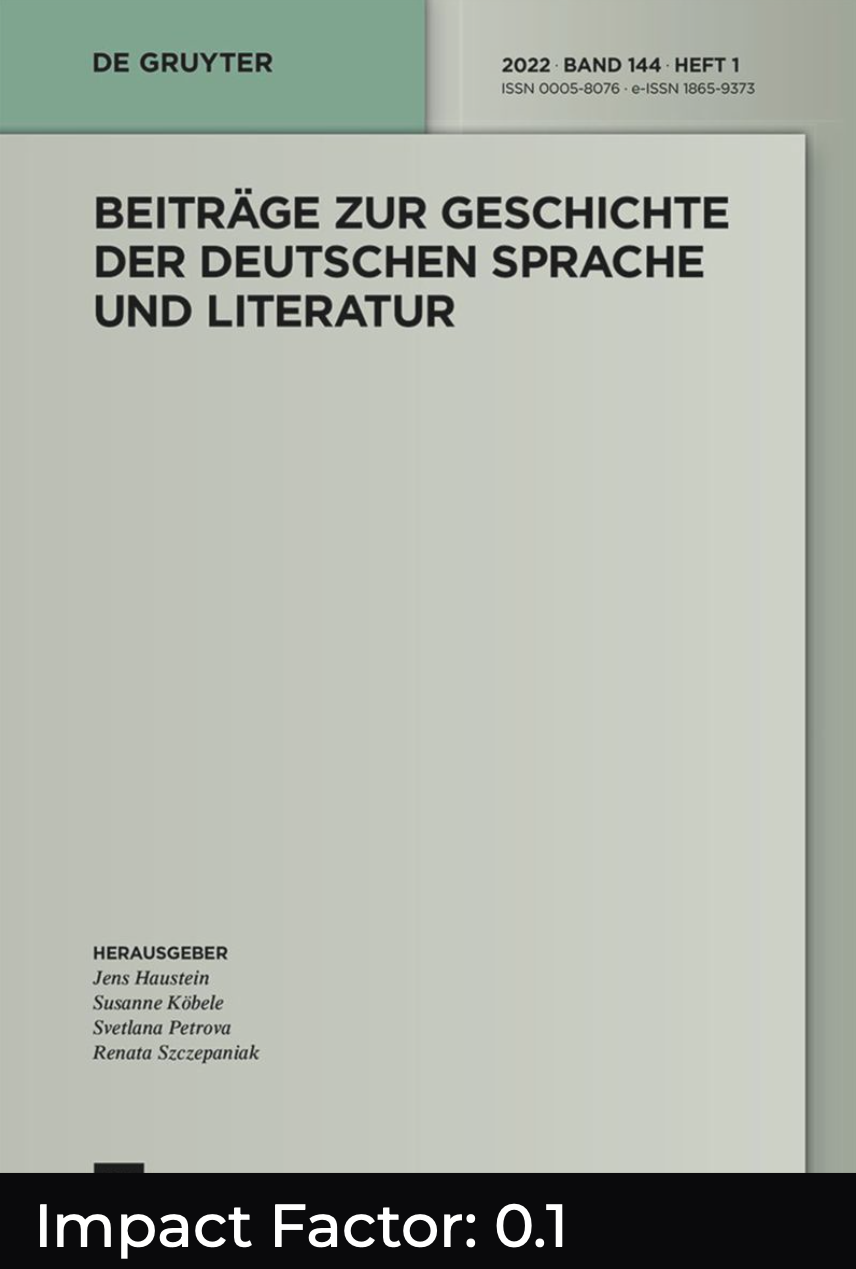 Widerspruch als Erzählprinzip in der Vormoderne? Eine Projektskizze
Widerspruch als Erzählprinzip in der Vormoderne? Eine ProjektskizzeIn premodern narratives contradictions are omnipresent – conflicting concepts, logical inconsistencies, acts of objection. In a narratological perspective ›contradiction‹ – conflicts of incompatible knowledges and narrative patterns; inconsistencies in or between speech (by narrator or characters) and action; contradictory or inconsistent information and motivation – is apt to subvert, complicate, or enrich the textual production of meaning. The project ›Contradiction as a Narrative Principle in Premodern Narrative‹ (University of Bremen) explores different types of contradictions in medieval epic and romance.
-
 Discourse Analysis as Critique
Discourse Analysis as CritiqueThis paper intervenes in the discussion about the relationship between discourse analysis and critique. It argues that this relationship can be understood either as an external or as an integrated relationship. In an external relationship, there is first social criticism that is then braced by discourse analysis, that is, the latter aims at giving empirical credence to the critique. However, such an external relationship cannot give us any insight concerning the critical potential that is specific to discourse analysis, precisely because in this case critique exists before and independent of discourse analysis. If, however, critique emanates from discourse analysis itself, we would speak of an integrated relationship and would no longer speak of discourse analysis and critique, but of discourse analysis as critique. It is argued that such an integrated relationship becomes visible once we think of discourse analysis as being itself a discursive formation and ask what unsettling effects this formation has on research objects, on subject formations and on the academic production context in which they are conducted.
-
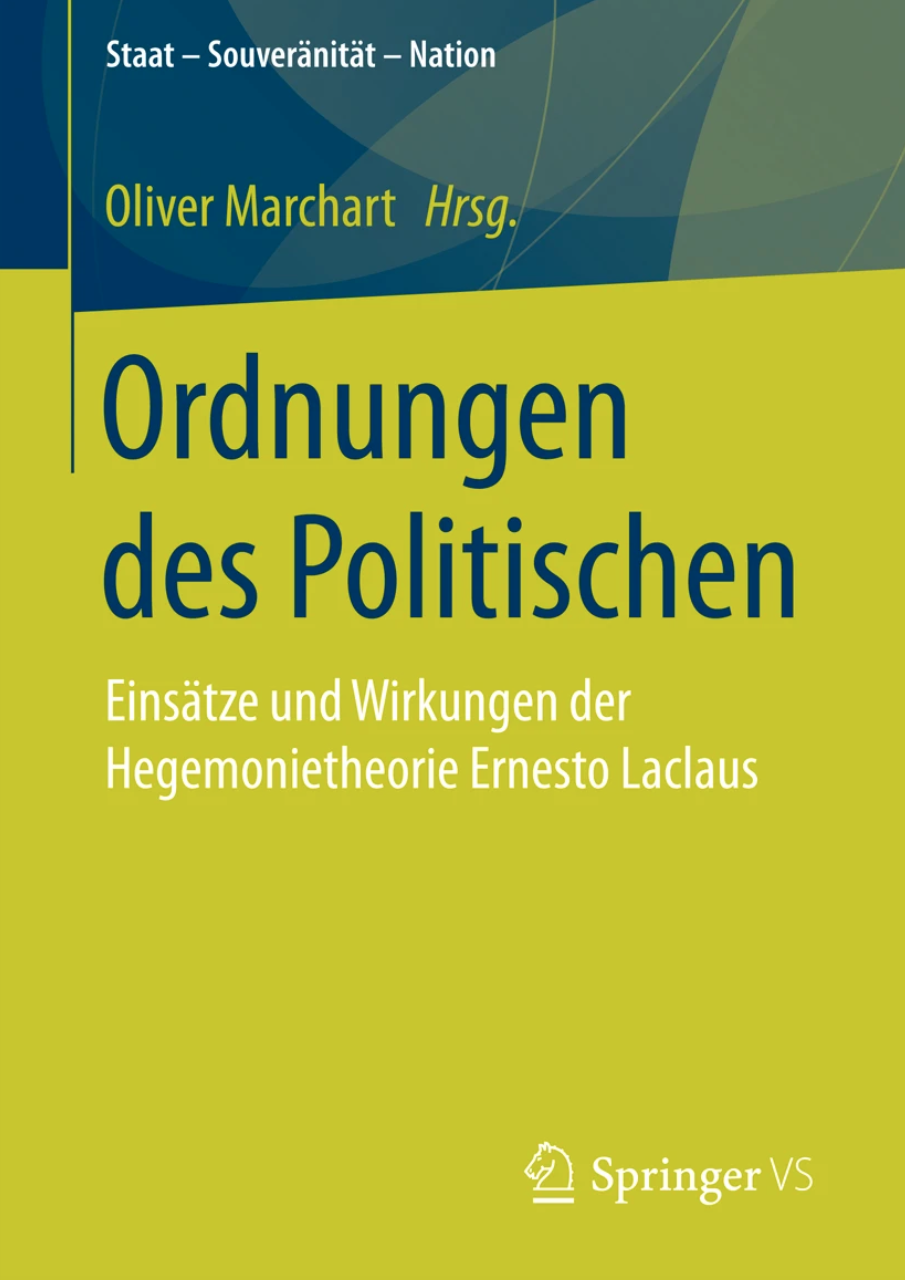 Antagonismus und Antagonismen. Hegemonietheoretische Aufklärung
Antagonismus und Antagonismen. Hegemonietheoretische Aufklärung
-
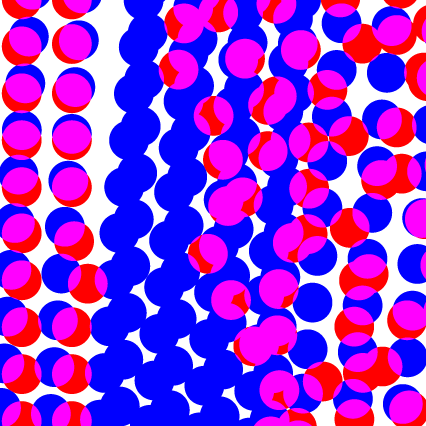 Antagonisten im höfischen Roman? Eine Skizze
Antagonisten im höfischen Roman? Eine SkizzeThis contribution (re-)examines the description and multiple functions of selected antagonists in courtly romance around 1200. Excepting romance of antiquity, one rarely encounters equal opponents who represent a contrary system of values and continue to take consequent action against the hero until the end. The texts are centered on their protagonists, lacking an equal narrative counterpart. Hence, the applicability of the concept ‘antagonist’ might be called into question for Arthurian, grail, and Tristan romance.
-
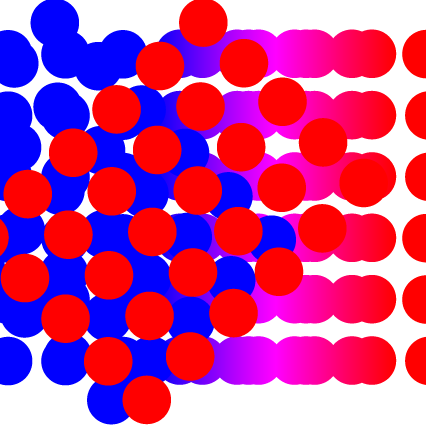 “Wildekeit” und Widerspruch. Poetik der Diskrepanz bei Konrad von Würzburg
“Wildekeit” und Widerspruch. Poetik der Diskrepanz bei Konrad von Würzburg
-
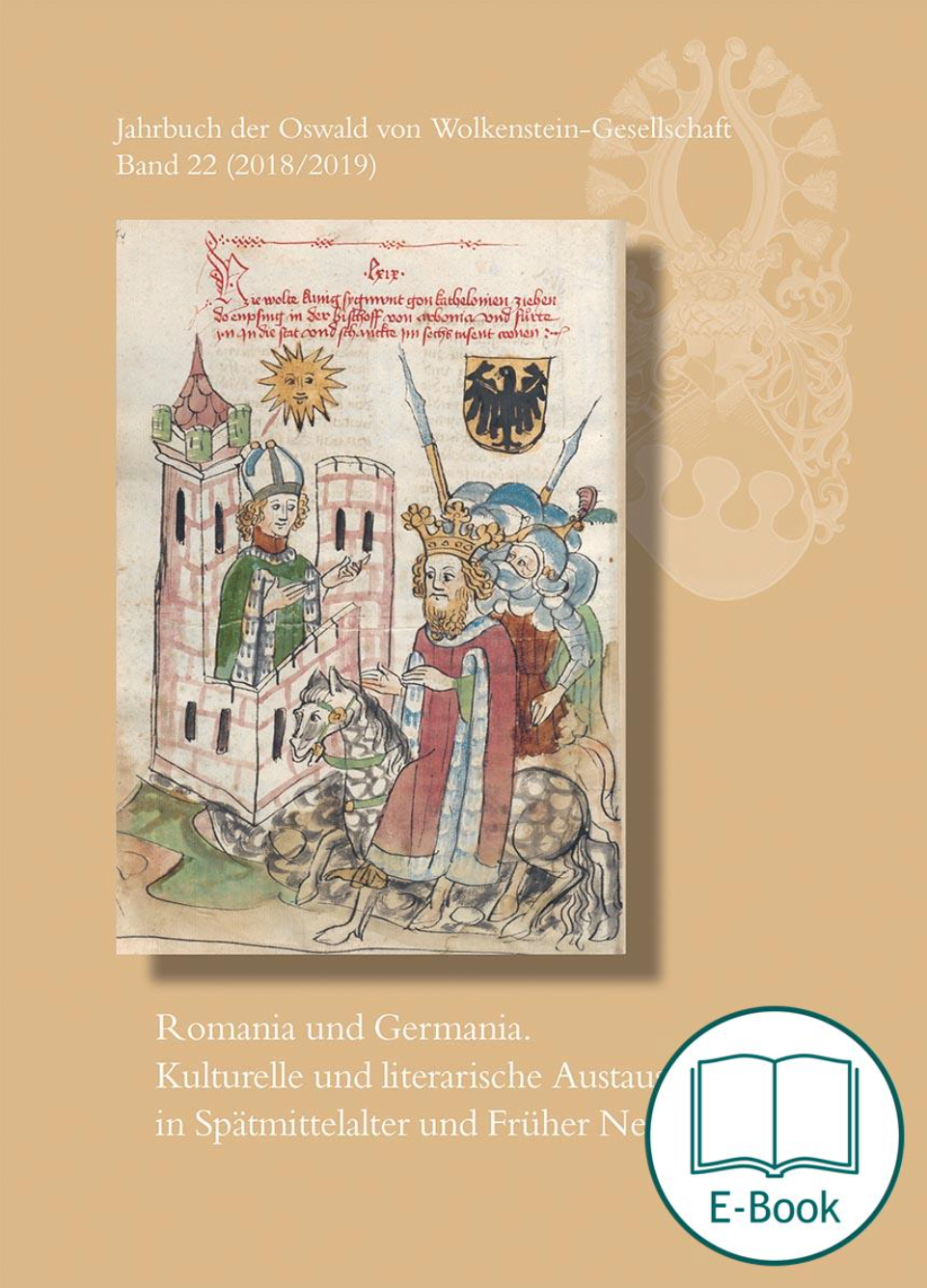 Erzähllogiken transnational. Narratologische Aspekte der Rezeption französischer Heldenepik in frühneuhochdeutscher ProsaErzähllogiken transnational
Erzähllogiken transnational. Narratologische Aspekte der Rezeption französischer Heldenepik in frühneuhochdeutscher ProsaErzähllogiken transnational
-
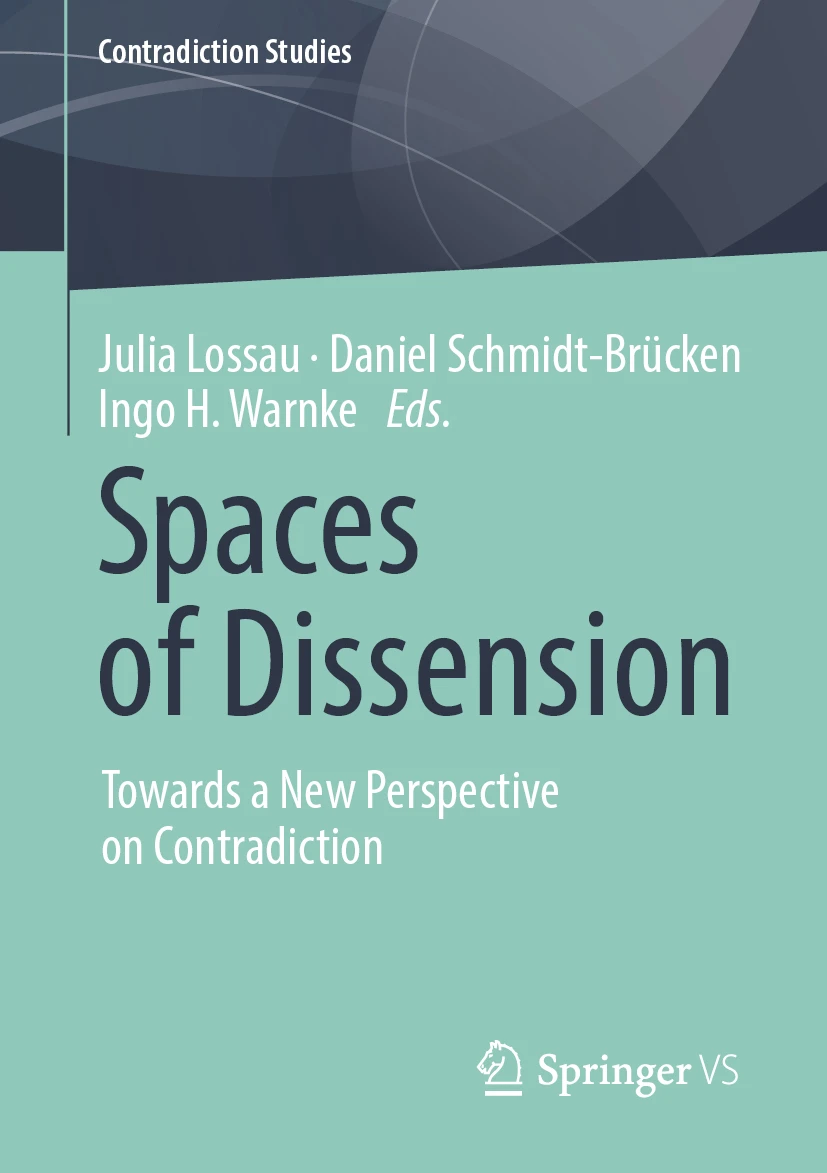 Knowledges and Contradictions in Premodern Narratives.
Knowledges and Contradictions in Premodern Narratives.Contradiction is not just a (post-)modern phenomenon. In premodern narratives, conflicting concepts and logical inconsistencies are omnipresent. This paper focuses on contradictions interdependent with knowledge: Traditional narratives may aggregate different versions of matters rooted in collective memory (heroic epic) or authoritative sources (romances of antiquity), sometimes without concern for the consistency of their own story. Narrative texts may use contradiction for didactic purposes. Contradictions may result in both construction and deconstruction of knowledge. Strategies of irritation and ambiguity involve recipients in the production of meaning. Thus, the concept of contradiction is apt to redefine premodern narrative strategies.
-
 Widersprüche in heldenepischem Erzählen
Widersprüche in heldenepischem ErzählenThis article (re-)examines (marked) inconsistencies and incompatibilities in Middle High German heroic epic. Those contradictions may result from oral tradition, from the difficulties of transfering oral narratives into literacy, from the conditions of performing from memory, or from traditional narrative regularities of the genre. Frequently, they are striking side effects of a type of narration which is paradigmatic instead of syntagmatic, elliptic and aggregative, scenic and final, and therefore highly tolerant against contradictions of any kind. Contradictions and inconsistencies are (consciously or unconsciously) used (and imitated) as one of the constitutive stylistic features of heroic epic. In some cases, moreover, contradictions and inconsistencies are obviously part of an intentional poetics of contradiction ostentatiously accumulating and exhibiting different layers of knowledge and meaning. The textual strategies of heroic epic, in some respect perhaps of premodern narration in general, tend to favour discrepancies, contrasts, and contradiction instead of nuances, compromises, and smooth transitions.
-
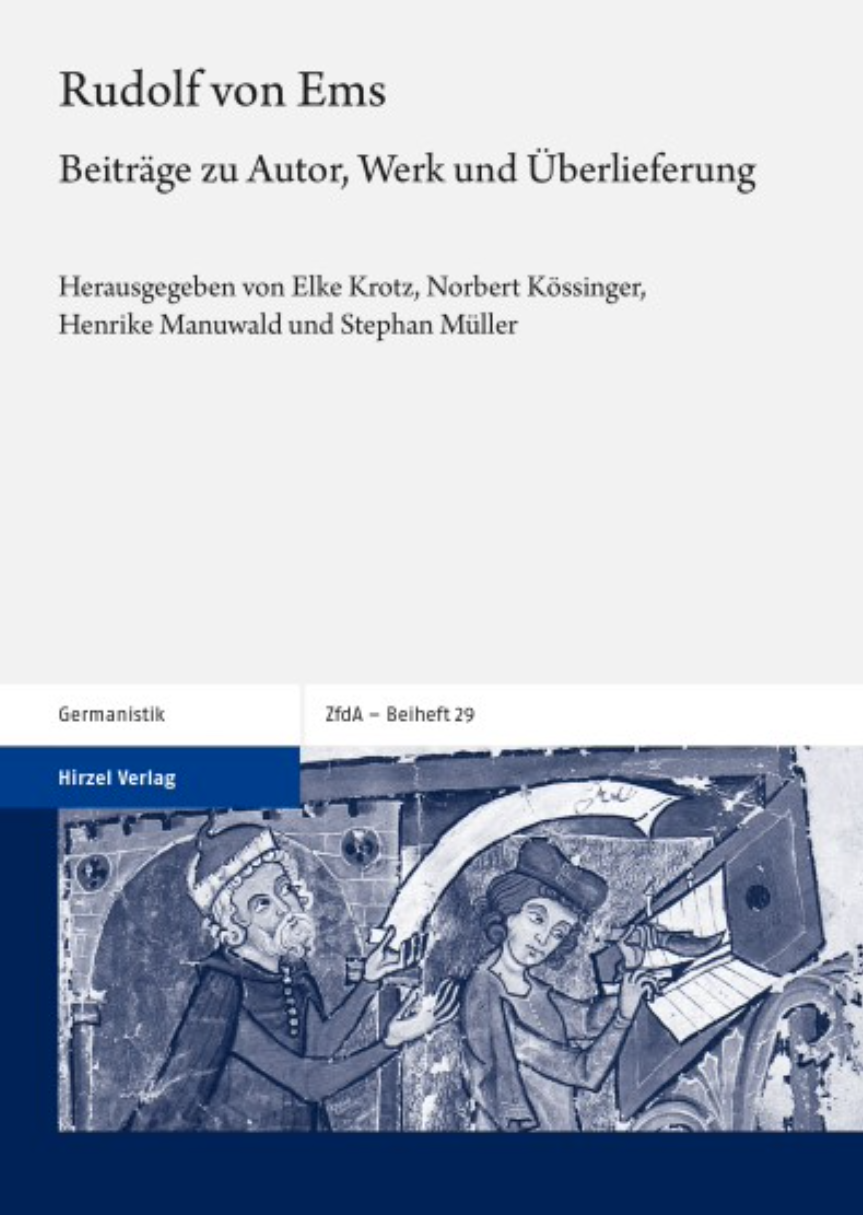 Idealisierung und Widerspruch. Zur Figurenkonstitution von Rudolfs von Ems Alexander.
Idealisierung und Widerspruch. Zur Figurenkonstitution von Rudolfs von Ems Alexander.
-
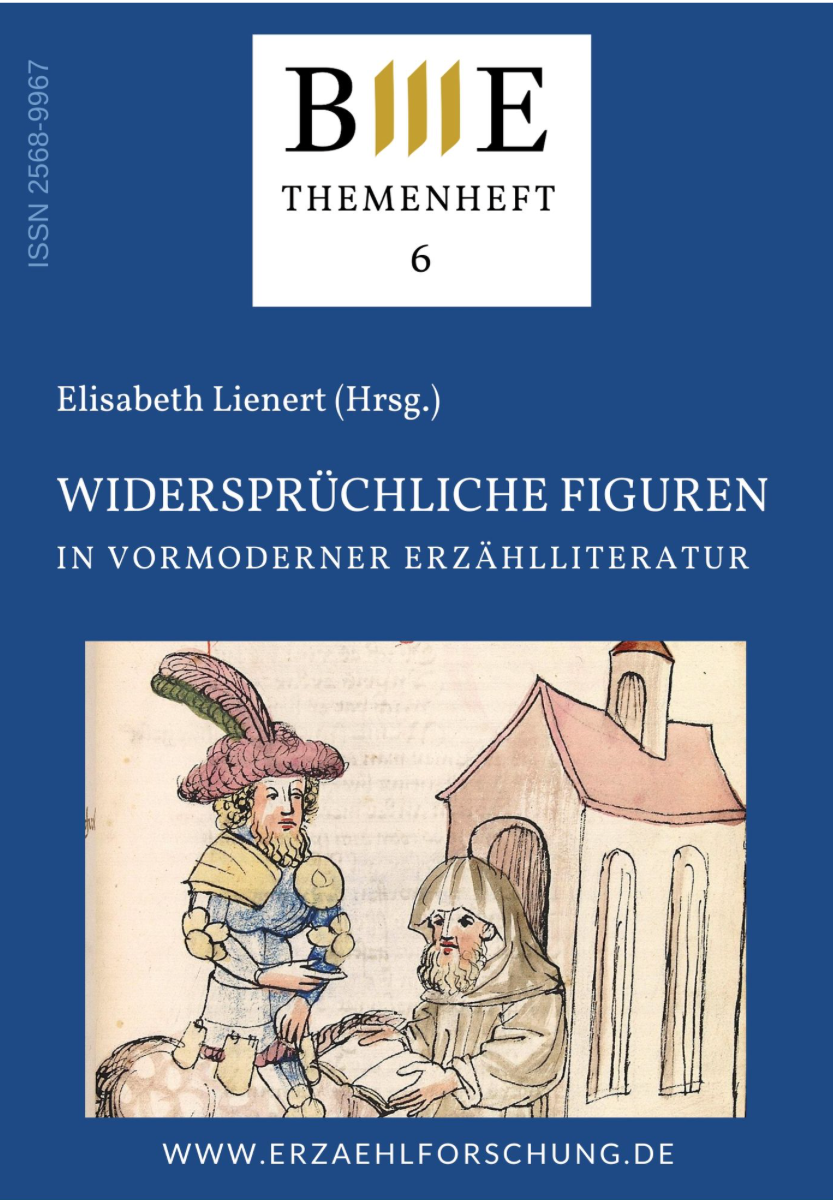 Herrschaft und Macht im Widerspruch. Problematische Könige im ›Nibelungenlied‹
Herrschaft und Macht im Widerspruch. Problematische Könige im ›Nibelungenlied‹Using the examples of Gunther, Siegfried, Dietrich of Bern and Etzel in the ‘Nibelungenlied’, the lecture examines contradictions between royal rank and actual power to act, between the actions of rulers and the discourse of domination. They point to the genre-typical self-portrayal of the warrior nobility in the heroic epic and to the primacy of material history and the finality of the plot over the constitution of the characters, which in this respect is only ‘subordinately’ contradictory, but also to shifts in the discourse of rulership.